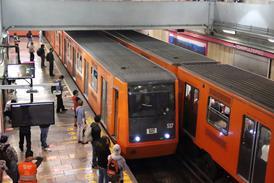Close menu
- Home
-
News
- Back to parent navigation item
- News
- Traction & Rolling Stock
- Passenger
- High Speed
- Freight
- Infrastructure
- Policy
- Technology
- Ticketing
- Business
- Research, Training & Skills
- Accessibility & inclusion
- People
- Urban rail news
- Suburban and commuter rail
- Metro
- Light rail and tram
- Monorail and peoplemover
- Regions
- InnoTrans
- In depth
- Events
- Data
- Maps
- Tenders & Jobs
- Sponsored content
- Insights
RMV prepares to deploy world’s largest hydrogen train fleet
By Railway Gazette International17 November 2022

GERMANY: Rhein-Main transport authority RMV has demonstrated the first of 27 Cordia iLint fuel cell multiple-units being delivered by Alstom, which are due to begin entering revenue service from December.
Already have an account? LOG IN
To continue…
You’ve reached your limit of content for the month
Get enhanced access to Railway Gazette news and weekly newsletters.
Site powered by Webvision Cloud














